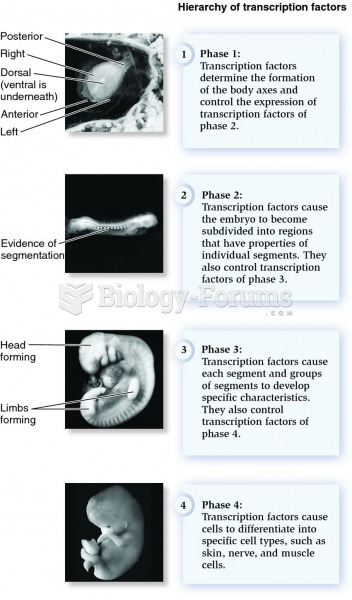Answer to Question 1
D
Feedback:
The main point of Erikson's theory on which the nurse should focus is that each stage of development contains a psychosocial challenge or critical period, during which the person must deal with a major life change. Piaget states that cognitive development is cumulative; that is, what is learned is based on what has been known before. During the sensorimotor period, according to Piaget, the child develops an understanding of object permanence, the knowledge that an object seen in a particular spot continues to exist and will return to view when uncovered. During the preoperational period, children investigate and explore the environment and look at things from their own point of view.
Answer to Question 2
C
Feedback:
During regression, a child's behavior may go backward to that of an earlier stage of development; for example, during an acute illness, a child who has not needed diapers for a long time may have episodes of incontinence. Dismissing the behaviors with comments, such as Don't worry about it, I will get the nursing assistant to change the bed right now; Sometimes children get a little nervous when they are admitted to the hospital and might have one accident; Or The medications your child is receiving can cause incontinence and once the medication is discontinued it will no longer be an issue, are not the best explanations for developmental regression.







